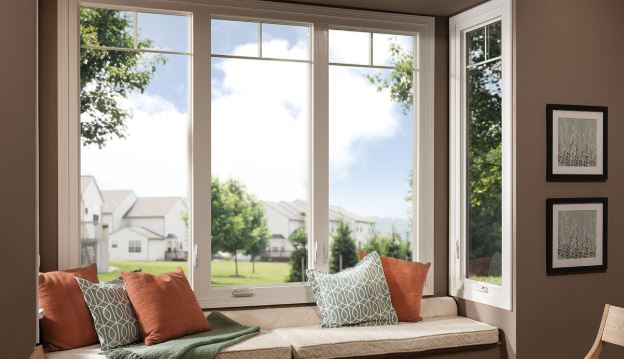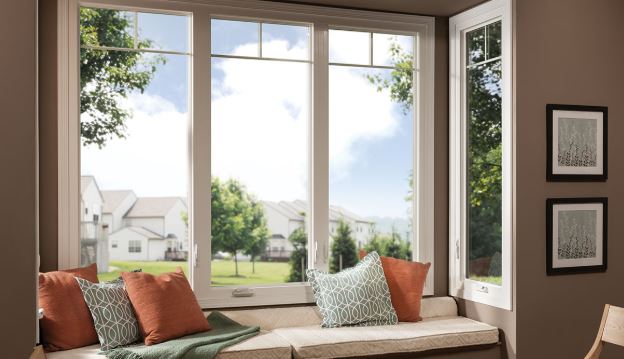Vinyl Windows

Vinyl Windows
So What Is Vinyl?
Vinyl is a man-made material created from ethylene and chlorine. Once these materials are processed, they combine to form Polyvinyl Chloride—or vinyl for short. Being a synthetic plastic-like material, vinyl is very resistant to moisture, humidity, and decay. For these reasons, vinyl has grown to be a major type of construction material. Additionally, vinyl can be recycled—making it an environmentally friendly construction material.
The Pros and Cons of Vinyl Windows
PROS
- The material used to make vinyl windows, uPVC, is a safe, stable compound that will not warp or flex.
- Vinyl windows come in a wear-ever lifetime woodgrain finish.
- Available in light oak, medium oak, cherry, and walnut look-alikes.
- Will not rust, warp, splinter, or rot.
- Highly weather-resistant, even in extreme conditions.
- A scratch can almost always be polished smooth with very little effort.
- One of the many reasons for uPVC’s popularity in the industry is its ease of maintenance. In fact, it is renowned as one of the world’s lowest-maintenance materials in construction.
- Since uPVC is a poor cold or heat conductor, owners get better insulation, compared to wood windows.
- More economical than buying wood windows.
- Easy to handle and lightweight, vinyl windows are champions in the trade.
CONS
- Over time, uPVC vinyl may become slightly brittle; a hard blow could break it.
- Though fire-resistant, vinyl windows will melt if they are exposed to a prolonged flame.
- They aren’t real wood.
Vinyl Windows
If you’re considering Vinyl Windows for your home, call Beckworth for a free quote (703) 570-6777, or use our contact form. You can also find good resources on our Blog or Facebook page.





